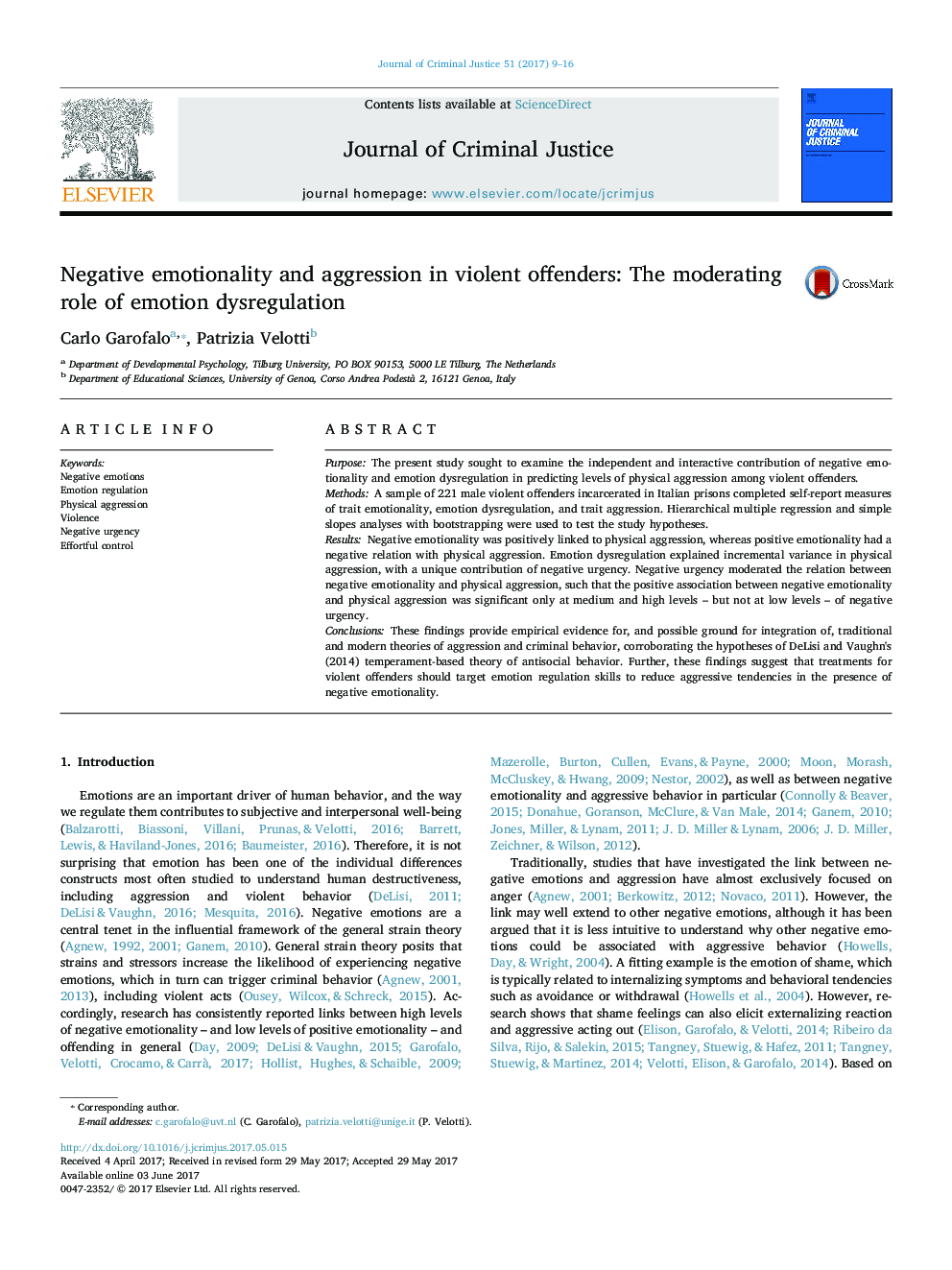| Article ID | Journal | Published Year | Pages | File Type |
|---|---|---|---|---|
| 5034365 | Journal of Criminal Justice | 2017 | 8 Pages |
â¢Negative emotionality (NE) is positively related to physical aggression.â¢Emotion dysregulation explains incremental variance in aggression beyond NE.â¢Negative urgency made a unique contribution on physical aggression.â¢Negative urgency moderated the relation between NE and aggression.â¢NE and aggression are not significantly related at low levels of negative urgency.
PurposeThe present study sought to examine the independent and interactive contribution of negative emotionality and emotion dysregulation in predicting levels of physical aggression among violent offenders.MethodsA sample of 221 male violent offenders incarcerated in Italian prisons completed self-report measures of trait emotionality, emotion dysregulation, and trait aggression. Hierarchical multiple regression and simple slopes analyses with bootstrapping were used to test the study hypotheses.ResultsNegative emotionality was positively linked to physical aggression, whereas positive emotionality had a negative relation with physical aggression. Emotion dysregulation explained incremental variance in physical aggression, with a unique contribution of negative urgency. Negative urgency moderated the relation between negative emotionality and physical aggression, such that the positive association between negative emotionality and physical aggression was significant only at medium and high levels - but not at low levels - of negative urgency.ConclusionsThese findings provide empirical evidence for, and possible ground for integration of, traditional and modern theories of aggression and criminal behavior, corroborating the hypotheses of DeLisi and Vaughn's (2014) temperament-based theory of antisocial behavior. Further, these findings suggest that treatments for violent offenders should target emotion regulation skills to reduce aggressive tendencies in the presence of negative emotionality.
